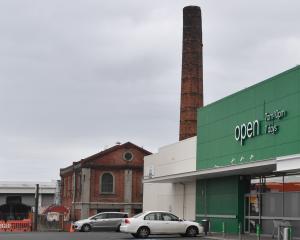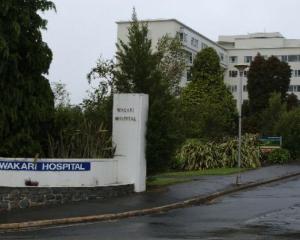Where is the urgency when it is needed?
Why does the Government appear to be dragging its feet in introducing a bowel cancer screening programme?
These are pertinent questions as each year many New Zealanders die unnecessarily.
Bowel cancer is the most common cancer in this country (along with prostate cancer) and claims the lives of 1200 New Zealanders each year.
It is only surpassed in number of deaths by lung cancer.
Breast cancer is next on the list.
If something can be done to cut that bowel cancer carnage, then surely it should be.
The Ministry of Health's own website says: ''Bowel screening can help save lives by detecting bowel cancer at an early stage when it can be treated more successfully. This is important as there may be no warning signs that bowel cancer is developing.''
It goes on to say recent research and modelling suggests deaths from bowel cancer can be reduced by between 14% and 16% over 10 years by the use of a particular test.
For New Zealand, with a newer version of the test, the number of lives saved is expected to be higher.
In the meantime, screening programmes have either been introduced or pilot programmes have begun in many countries including most of the European Union, Australia, Korea, Japan and Israel.
New Zealand is just at the pilot stage, with a screening programme in the Waitemata District Health Board region being extended into a fifth year.
The results, combined with the international evidence, clearly show the benefits of screening, so the matter should not be allowed to drag out.
Specific steps towards rolling out a national programme should have been taken long before now.
Dunedin oncologist Christopher Jackson, for one, has said the scientific evidence supporting bowel screening was stronger than for breast or prostate screening and there was no point waiting for the end of the pilot.
A big issue, to be fair, is the acute shortage of qualified specialists to perform colonoscopies.
There is little point establishing a screening programme if there is no-one to do essential work.
But that is a separate matter from examining the details of the New Zealand situation the pilot was set up to look at.
More should be happening on a parallel path to deal with this issue, although the Government says it has increased the numbers of colonoscopies available.
It might also have been possible to roll out a national programme in stages.
Health Minister Jonathan Coleman has said he expects to take a business case to Cabinet by the end of this year for a national screening programme but would consult the sector first.
The Government has also indicated, while not promising, the beginnings of a national programme from early 2017.
But the frustration over the past two years has been at the slow pace of developments.
The Government should be able, in a matter where lives are being lost, to pull out the stops, work down three or four paths at once and promote and push for prompt action, not just talk.
One of those paths could well be on screening method, with Dunedin's Associate Prof Brian Cox pushing another means from that used in the pilot, one which would eliminate the demand for large numbers of extra colonoscopies.
The world of cancer screening is changing - witness Dunedin company Pacific Edge and its non-invasive bladder cancer test - and, as well as speed, the ministry is going to require flexible thinking.
This week an overview of a major study into bowel cancer treatment in this country was presented and it made grim reading.
It exposed failures in the diagnosis and treatment of bowel cancer and New Zealand lined up poorly compared with Australia and the United Kingdom.
A third of patients with bowel cancer did not know they had it until they turned up at an emergency department (21% in Britain).
Fewer than half of patients with advanced cancer received life-prolonging chemotherapy. And only 60% of patients with stage 3 bowel cancer received chemotherapy (74% in Australia).
The frustration of Bowel Cancer New Zealand is understandable.
This country's performance has been not good enough.












